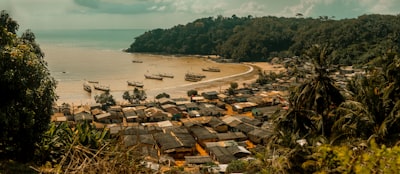Indonesian Influencer Imprisoned in Myanmar: Navigating the Dangers of Social Media in Conflict Zones
News of a 33-year-old Indonesian influencer receiving a seven-year prison sentence in Myanmar has rocked both the influencer and travel communities. Arrested for allegedly meeting with rebel groups and entering the country illegally, this incident raises urgent questions about the responsibilities, ethics, and consequences faced by social media personalities traveling in politically unstable regions.
The Risks of Traveling Influencers in Conflict Zones
In recent years, travel influencers have blurred the lines between journalism, tourism, and activism. Destinations like Myanmar, Ukraine, and Afghanistan attract content creators keen on raw storytelling. But when visiting conflict zones, influencers may:
- Face accusations of illegal entry or association with banned groups
- Risk detention, imprisonment, or worse if perceived as siding with resistance movements
- Endanger themselves and their guides or contacts on the ground
Myanmar’s Civil War and Media Crackdowns
Since the 2021 military coup, Myanmar has deteriorated into full-blown civil war. The ruling junta strictly controls information, frequently targets journalists and foreigners, and labels certain opposition groups as terrorists. Under these conditions:
- Foreigners risk severe penalties if seen as sympathetic to anti-junta factions
- Legal protections are limited or non-existent
- Communication devices and online footprints can be used as evidence in court
Social Media, Ethics, and Responsibility in Reporting from Dangerous Areas
Travel content can help shed light on underreported crises, but also carries significant responsibility:
- Ethical Dilemmas: Posting photos with armed groups or revealing sensitive locations can compromise local networks and aggravate hostilities.
- Influencer Accountability: What is the duty of influencers to understand local laws, political sensitivities, and the impact of their content?
- International Repercussions: Content creators facing legal trouble abroad may draw diplomatic interventions but can face harsh sentences if local authorities wish to make an example.
How Should Influencers Approach High-Risk Destinations?
Influencers and travel vloggers considering trips to regions like Myanmar, Afghanistan, or Ukraine should:
- Research the latest travel advisories and country entry laws
- Consult with experts and local fixers
- Consider the possible impact on themselves, locals, and international relations
- Weigh whether documenting the situation could aid awareness or fuel unrest
FAQ: Influencers and Political Hotspots
Q: Can influencers be charged with terrorism for meeting rebels?
A: In countries with broad anti-terrorism laws, yes — especially if those groups are designated as terrorists by the ruling regime.
Q: Are there safer ways to cover conflict zones?
A: Collaborate with reputable news agencies, undergo hostile environment training, and adhere to journalistic ethics.
Q: What if I’m arrested abroad for my content?
A: Contact your country’s embassy immediately; legal outcomes vary by country and the specific charges involved.
Key Takeaways for Social Media Creators
- Conflict reporting is dangerous — both ethically and legally — especially in countries experiencing long-running civil wars.
- Know local laws, understand the risks, and consider the long-term consequences for yourself and those you interact with.
- Prison sentences for influencers are not just possible, but increasingly likely as regimes tighten control over narratives online.
Related Reading
- Travel Advisories – Government of Indonesia
- Journalist Security: Committee to Protect Journalists
- Myanmar Crisis Updates – United Nations
Conclusion
The story of the Indonesian influencer sentenced in Myanmar serves as a stark warning for content creators everywhere: personal adventures in politically sensitive areas can have dire consequences. If you’re a digital nomad, journalist, or influencer, understanding the intersections of travel, media, and law has never been more critical.

Comments
No comments yet. Be the first to comment!